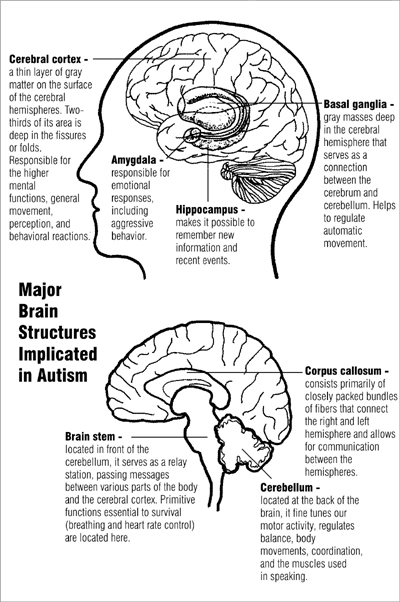 Special Education is defined as specially designed instruction to meet the unique needs of a child with disabilities. This specialized instruction helps prepare the child for further education, vocation or employment, and independent living. Special Education services include providing modified classroom instructions, developmental and adapted physical education, transition to adulthood, vocational training, and other related services such as speech/language pathology services, occupational and physical therapy, social skills training, etc. In Florida, children with special learning needs are referred to as exceptional students, and Special Education is referred to as Exceptional Student Education (ESE).
Special Education is defined as specially designed instruction to meet the unique needs of a child with disabilities. This specialized instruction helps prepare the child for further education, vocation or employment, and independent living. Special Education services include providing modified classroom instructions, developmental and adapted physical education, transition to adulthood, vocational training, and other related services such as speech/language pathology services, occupational and physical therapy, social skills training, etc. In Florida, children with special learning needs are referred to as exceptional students, and Special Education is referred to as Exceptional Student Education (ESE).
Under the Individual with Disabilities Act (IDEA), states are required by federal law to provide Special Education services. In addition, students are entitled to receive free and appropriate public education (FAPE); therefore, these services are at no cost to the parents.
To receive Special Education services, the student must meet the criteria of at least one of the child with disability categories: Autism, Deaf-blindness, Deafness or hard of hearing, Emotional disturbance, Intellectual disability, Orthopedic impairment, Other health impairment, Multiple Disabilities, Specific learning disability, Speech or language impairment, Traumatic brain injury, and Visual impairment including blindness. The State Board of Education Rules for ESE in Florida includes two other categories: Developmental delayed (for children ages 3 through 5 years old) and Homebound or hospitalized. For more information on these ESE categories, please read: http://www.fldoe.org/ese/ese-home.html.
States/school districts follow the same general eligibility/evaluation process; however, sometimes, they have their own procedures. The process is typically comprised of the following:
· Child find is an IDEA mandate that requires the school to identify and evaluate children with disabilities. This mandate applies to ALL children from birth to 21 years of age. This includes students attending public or private schools, are homeless, and those who are wards of the state. Teachers and other school personals are the ones who typically refer a student for evaluation; however, parents could refer their children to be evaluated.
· Once a student is referred, the parents are asked to come in for an Initial Meeting with school staff to go over the academic and/or behavioral concerns. During this meeting, parents are told about their and their child’s rights. The parents are given a copy of the Procedural Safeguards Notice, which is a formal document that covers these rights. Further, the parents are asked to sign a consent for the individual evaluation. This consent includes the reasons for the referral and evaluation, the type of assessments that will be administered, and other records or reports they will include to make the decision.
· The Evaluation process involves gathering information about the student’s strengths and weaknesses, as well as finding out about his or her learning style and needs. The student is assessed using different kinds of tests (e.g., administration of paper and pencil tasks, completion of rating scales, etc.) by more than one school staff (e.g., teachers, speech-language pathologists, occupational or physical therapists, guidance counselor, school psychologists, school social workers, hearing specialists, and assistive technology specialists). The student will also be observed in the classroom and other school settings. Part of this process is a comprehensive parent interview in which the parents are asked about the student’s developmental and medical history. Some questions are particularly to understand the student’s behaviors, social skills, and study habits outside the school. The parents may also be asked to complete behavioral rating scales for more information.
· The Determination of Eligibility should be made within 60 days after the parents signed the consent. This means that the comprehensive evaluation should be completed before the Eligibility/Determination Meeting. This meeting is attended by the parents and school staff to discuss the results of the evaluation and whether the student met criteria to receive services under one of the categories above. In this meeting, the team (i.e., parents and school staff) also discusses the type of instruction and relates services that the students need to best learn.
Eligible students will have an Individualized Educational Program (IEP), which is a written document that outlines the Special Education and related services appropriate for the student, based on the results of the evaluation. It specifically outlines educational goals and the day-to-day instruction the student will receive, who will implement the instructions, and time and location these instructions will be implemented. IEPs are developed during the initial IEP meeting, which is attended by the parents and the school staff. It is the parents’ decision if they would want to include the student in the meeting. If the purpose of the IEP meeting is discuss Transitional Services, the school district must invite the student to attend. If the student is age 18 and is not on guardianship, then he or she should be in the meeting. The IEP meeting must be held within 30 days after the determination.
If the IEP team determines that the student does not qualify to receive services, but needs some help in school because of his or her disability, the student can receive accommodations under Section 504 of the Rehabilitation Act. It is important to note that to be eligible for this, the student must have a disability (i.e., mental or physical impairment) that substantially inhibits him or her to perform at least one major life activity (e.g., speaking, seeing, hearing, walking, reading, writing, learning, performing daily living activities etc.).

For more information on 504 Accommodations:
Commonly Used Special Education Terms:
- Adaptations:Modifications or changes to school instructions that helps a student with a disability to learn better in regular education (regular classroom).
- Annual goals: These are the measurable educational goals written on the IEP that are specific to the student. These are based on the present academic levels and functional performance of the student. The IEP may include one or more annual goals that the student should be able to attain within the year.
- Assistive technology (AT) devices: These devices or tools help the student learn and work in the school easily. For example, a student who is hard of hearing would benefit from having a FM radio speaker to hear the teacher better. This also refers to equipment that helps the students move or navigate around the school (e.g., wheelchair and walker).
- AT Services: This refers to the instruction to teach the student how to find, use, and repair their AT device.
- Extended school year (ESY): In some cases, students still receive services when the normal school year is closed (i.e., summer months). When the student is eligible, specific information should be outlined in the IEP.
- Family Education Rights and Privacy Act (FERPA): This is a federal law that protects the privacy of student education records. This law is gives parents rights to have access to their children’s school records.
- Functional behavior assessment (FBA): In cases that involves concern with the student’s behavioral problems, FBA is included in the evaluation. This is to look at the student’s behaviors more carefully, particularly assessing for the types of behaviors, antecedents, duration, frequency, severity, and environment where the behavior occurs. Based on the FBA, a Behavior Intervention Plan will be developed.
- Least restrictive environment (LRE): This is also referred to as the mainstream policy, where a student receives his or her instruction in a regular classroom. This is the setting where the student would receive the most appropriate supports and supplementary aids.
- Present Levels of Academic Achievement and Functional Performance (PLAAFP): A description of a student’s academic functioning. It gives a detailed information about the strengths and weaknesses of the student.
- Reevaluation: Every three years, the student is re-assessed to find out about his or her current academic functioning. This is also to make sure that the student is progressing according to plan.
- Transitional Services: These are activities or instructions that help a student move from school to adult life, particularly training on independent home living, postsecondary or vocational education, and employment. These services are dependent on the student’s needs and interest. Transition planning should begin when the student is age 14. These services should be included in the IEP.
WEBSITES RELATED TO SPECIAL EDUCATION:
 Regilda Romero, Ph.D. has extensive training and experience in behavioral observation and analysis, working with school systems to implement IEP plans for children with ADHD, Learning Disabilities, Autism Spectrum Disorder, and other neurodevelopmental disorders. She has trained in pediatric neuropsychology and has provided graduate level instruction in faculty position. Pending approval of her application for Florida Licensure as a psychologist, she is available for neuropsychological consultations and assessment as a psychology resident with Clinical Psychology Associates of North Central Florida (offices in Gainesville and Ocala) under the supervision of Ernest J. Bordini, Ph.D. We have provided comprehensive pediatric neuropsychological assessments for more than 20 years.
Regilda Romero, Ph.D. has extensive training and experience in behavioral observation and analysis, working with school systems to implement IEP plans for children with ADHD, Learning Disabilities, Autism Spectrum Disorder, and other neurodevelopmental disorders. She has trained in pediatric neuropsychology and has provided graduate level instruction in faculty position. Pending approval of her application for Florida Licensure as a psychologist, she is available for neuropsychological consultations and assessment as a psychology resident with Clinical Psychology Associates of North Central Florida (offices in Gainesville and Ocala) under the supervision of Ernest J. Bordini, Ph.D. We have provided comprehensive pediatric neuropsychological assessments for more than 20 years.

